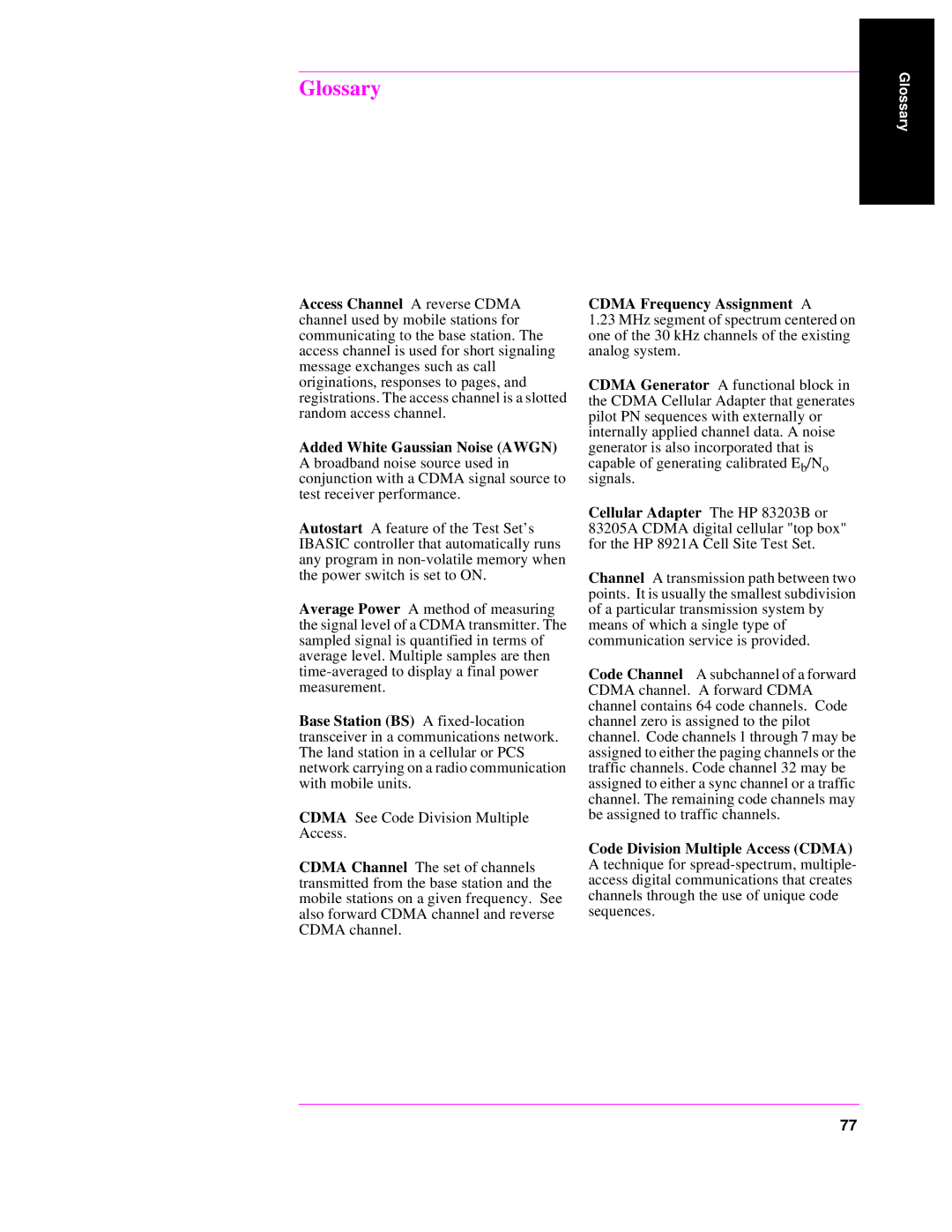
Glossary
Glossary
Access Channel A reverse CDMA channel used by mobile stations for communicating to the base station. The access channel is used for short signaling message exchanges such as call originations, responses to pages, and registrations. The access channel is a slotted random access channel.
Added White Gaussian Noise (AWGN) A broadband noise source used in conjunction with a CDMA signal source to test receiver performance.
Autostart A feature of the Test Set’s IBASIC controller that automatically runs any program in
Average Power A method of measuring the signal level of a CDMA transmitter. The sampled signal is quantified in terms of average level. Multiple samples are then
Base Station (BS) A
CDMA See Code Division Multiple Access.
CDMA Channel The set of channels transmitted from the base station and the mobile stations on a given frequency. See also forward CDMA channel and reverse CDMA channel.
CDMA Frequency Assignment A
1.23MHz segment of spectrum centered on one of the 30 kHz channels of the existing analog system.
CDMA Generator A functional block in the CDMA Cellular Adapter that generates pilot PN sequences with externally or internally applied channel data. A noise generator is also incorporated that is capable of generating calibrated Eb/No signals.
Cellular Adapter The HP 83203B or 83205A CDMA digital cellular "top box" for the HP 8921A Cell Site Test Set.
Channel A transmission path between two points. It is usually the smallest subdivision of a particular transmission system by means of which a single type of communication service is provided.
Code Channel A subchannel of a forward CDMA channel. A forward CDMA channel contains 64 code channels. Code channel zero is assigned to the pilot channel. Code channels 1 through 7 may be assigned to either the paging channels or the traffic channels. Code channel 32 may be assigned to either a sync channel or a traffic channel. The remaining code channels may be assigned to traffic channels.
Code Division Multiple Access (CDMA)
Atechnique for
77
